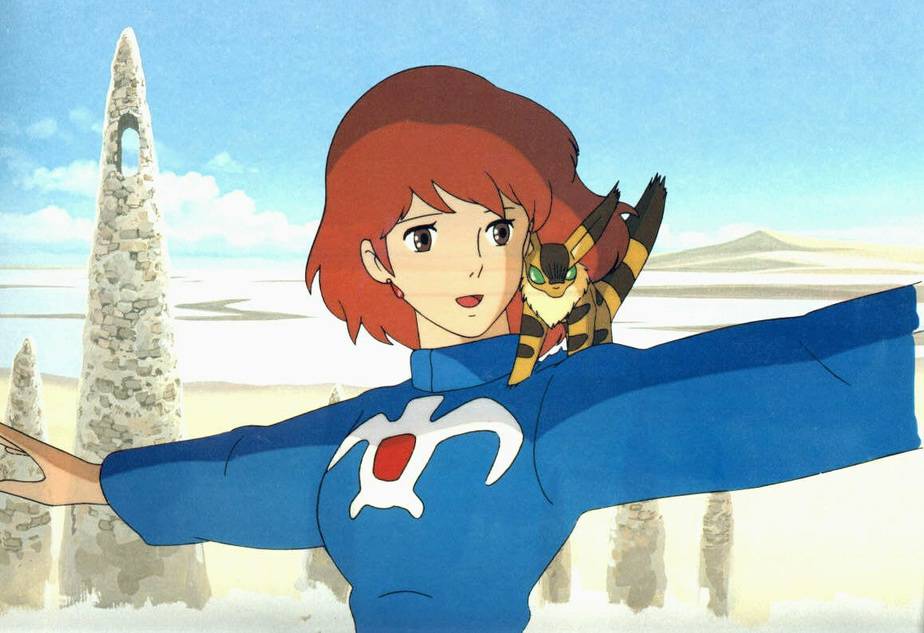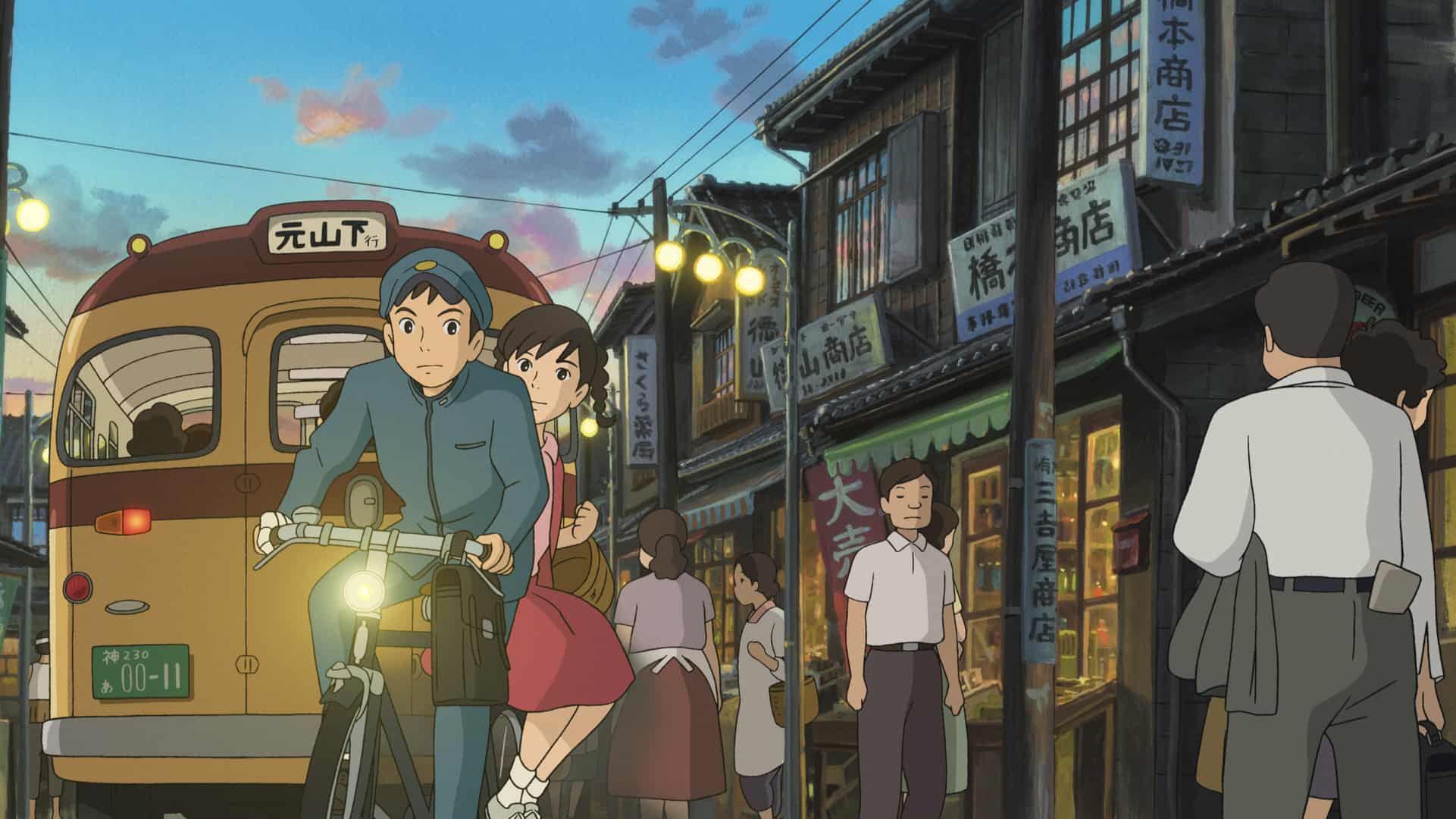by Zofia Pacholczyk
‘Who run the world?' As Queen Bey teaches us, there's only one correct answer to this question – girls. And that surely is the case in Hayao Miyazaki's iconic animation “Spirited Away”.
The core location of the movie is a bathhouse. Abandoned by humans, it now serves yōkai – mysterious creatures resembling gods, monsters or spirits, present in Japanese legends and folk tales for ages. A little girl called Chihiro is forced to work there to help her parents, who'd been turned into pigs for eating yōkai's food. The bathhouse is run by Yubaba – an old, cruel witch feared by everyone. Despite being a woman, she is depicted as the most powerful person in the whole movie. On top of that, she's a single mother, which makes her quite a unique antagonist for Japanese cinema. What does Yubaba represent and is she all that bad?
This article is part of the Asian Cinema Education Film Criticism Course 2021

Hierarchy in business and Japanese working culture
My first thought when considering Yubaba's character was: ‘That's a perfect role model for business people!'. Her decisiveness, profit-orientation and demandingness are a highlight of what Japanese (and not only) enterprises represent. Yubaba can control people's lives by stealing their names. Once they forget their real name, she can change their priorities and identity. They lose control over their lives and get trapped in the bathhouse, having to serve there forever. This has happened to one of the workers – Lin. In one scene we see her saying she's ‘gonna get outta here one day'. The sad part is – we can guess she will never succeed. It is commonly believed that the bathhouse symbolizes the Japanese sex industry – prostitutes and geishas usually change their names when they start working in this business. They are often unable to run away and start a better life, even though many of them surely want to.
However, Yubaba's management methods are also typical of many other industries. Strongly focused on controlling people, she tries to discipline them by control and fear. When she flies, she resembles a military plane, which (along with the sound of those scenes) creates a war-like atmosphere of anxiety. Nowadays, we see many people working in various corporations being exploited by their over-controlling bosses, wanting to stand up to them but always failing to do so. Loneliness, isolation and anxiety make the employees more vulnerable and easier to exploit. These tactics are commonly used not only in the corporate environment, but also by organizations such as yakuza or some governments. The mob will control your every move and punish each minor mistake severely, even if you are not the one to blame. Isn't that what some countries' regimes do, too? Yakuza expects full commitment and loyalty, not giving much in exchange. It closely resembles overtime working for the lowest wage, including sudden weekend, ASAP-deadline projects that often ruin people's social lives or end in health issues.
The way Yubaba treats people makes it clear that to her, they are merely tools to make a profit. If they don't work, they will be turned into small animals. She would let Haku – her loyal assistant/intern – die when he gets wounded, only because ‘he's no use to her right now'. However, this attitude is followed by an appreciation for hard work and by wonderful intuition. Doubtful about giving Chihiro a job at first, the witch shows her no respect, claiming she's only a lazy, whining brat. As soon as the girl proves that she can work hard and saves the bathhouse some trouble, though, Yubaba starts treating her more seriously. This, of course, shows her greed and hypocrisy but is also an example of good management skills and great business instinct. Yubaba cares for effectiveness. She pressures workers into following the rules – partially because she herself needs to obey them. This is a good representation of Japanese hierarchy, where everyone – even the boss of all bosses – has someone or something more important than them. Let it be tradition, politeness, family or corporate values – there are always rules to follow.
Another thing worth noting is Yubaba's living space. For a very long time, we don't get to see the witch in the movie. Other characters mention her frequently in a fearful manner, which makes the viewer grow anxious about what she may turn out to be. When Chihiro decides to go ask her for a job, we get lost in a massive maze of red and gold corridors. Pulled forward by Yubaba's magic, we finally find the Boss herself in her office. Her apartment is located on top of the bathhouse, which illustrates her place in the yōkai world hierarchy. It seems to be the only western-styled space in the traditional Japanese bathhouse – with chairs, a cozy fireplace and reliefs on walls. Its excessive decor depicts just how powerful and rich Yubaba is. This impression is even doubled by her (also western-style) clothes and a significant amount of golden rings on her fingers. Such westernization may suggest that Yubaba represents the working culture Japan adopted from abroad. The bathhouse, however, operates in a traditional Japanese way and the staff here is full of greed and materialism, too. Perhaps the mix of western and traditional features only suggests that business is business – and no matter the culture, it will always have dark sides to it.
As bad as Yubaba may seem, she proves not to be entirely immoral. She values her customers and is truly professional. When the Stink Spirit arrives at the bathhouse, she doesn't refuse to serve him despite the unbearable stench. Not from greed, but from her sense of duty towards clients – again a typically Japanese attitude. She even gets everyone to help Chihiro remove a mysterious object from the Spirit's back – she understands the value of teamwork. She is fair to her employees – appreciates hard work but punishes laziness. As a great leader, Yubaba gets the bathhouse work perfectly, even in crises. It is when she is asleep that Kaonashi starts giving gold away, devouring people, and the situation becomes dramatic. This suggests that – as terrifying as they may be – bosses of this kind are the ones to keep the business up. After all, there is a reason many global enterprises follow Yubaba's path.
Family
Yōkai and humans are presented in the same manner in “Spirited Away”, and we learn that none of them is bad by nature. Kaonashi, a human-eating yōkai, turns out to be just lonely (there may be simpler ways to get people's attention, but still). The Stink Spirit is actually a spirit of a river polluted by humans. The same goes for Yubaba – she too has a softer side to her.
Despite her western connotations, we can see that Yubaba is based on Yamauba (or Yamamba, ‘mountain witch') – a very popular Japanese yōkai of a dualistic nature. Typically depicted as an old, tall woman with a wide mouth and long hair, she lives in the mountains. She invades villages, kidnaps and devours women, children and animals, and kills travelers crossing the mountains. Some tales, however, picture Yamauba as a kind yōkai helping with housework and bringing good luck. These two natures are sometimes combined in one legend: if you invade Yamamba's mountain shelter, she will curse you; if she visits your home of her own will, however, she brings luck and good fortune. Same as Yamauba, Yubaba is a single mother – and her son Boh is the only person she seems to care about.
Boh lives in a huge room with plenty of toys and is a typical spoiled kid. He tries to blackmail Chihiro a couple of times, which suggests that it usually works for his mom. Yubaba doesn't let him out, trying to protect him from illness (or so she says). It may be caused by the lack of knowledge about child-rearing – a problem very common in modern families. Having grown up in a family that values money more than people, she would have no parenting role model to follow. It may also be a representation of overprotective parents. When Boh tells Chihiro he can't go out because he will become sick, she replies with ‘you'll become sick if you stay here'. It is one more situation of getting stuck in a toxic environment. The difference here is that families usually mean no harm – they would keep hurting their children, thinking it's for their own good. Perhaps it is a subtle hint to consider being a parent closely before we decide on it. Yubaba doesn't seem to be suitable for it or know much about parenting. But maybe if she changed her priorities and asked others for advice, she could make a wonderful mother?
Boh is not Yubaba's only family. She also has a twin sister – Zeniba. Their relation is not a friendly one – Yubaba tries to steal a precious stamp from her sister, which results in Zeniba spying on her and enchanting her son. Thanks to that, however, Boh manages to escape his room and travel with Chihiro to visit Zeniba. She is friendly and kind-hearted – no wonder Chihiro calls her ‘granny'. She is also full of compassion and tries to teach Boh the value of friendship. Despite Yubaba stealing from her, she shows no will to hurt Boh – on the contrary, she uses their time together to fix his mom's parenting mistakes. Yubaba, on the other hand, proves to value money more than her son. When Haku hints that she had lost something important, she first checks her gold, unaware of Boh's disappearance. She doesn't even recognize him when he gets turned into a rat magically, which shows how superficial she is. Nevertheless, she worries about her child and easily forgives not only him but also Chihiro. It took some threats that he wouldn't love her anymore, but it does prove how important family is to Yubaba.
Two sides of human nature
Yubaba and Zeniba don't only look identical, but both are also powerful witches who appreciate hard work and politeness. Their close resemblance is expressed by their living spaces being the only western-styled interiors in the movie. Zeniba's house is very ascetic, with wooden chairs and tables, resembling cottages of forest witches from European fairy tales. That suggests that, despite the similarity, she is not as greedy as her sister. The twins' clothing and voices are exactly the same (in the original version of the movie both characters are voiced by Mari Natsuki). On top of that, characters used to write their names – Yu and Zen – make up the word ‘Sento' (‘bathhouse' in Japanese). All that suggests that Yubaba and Zeniba may in fact be a representation of the same person.
Zeniba has the same personality traits as Yubaba but lives by different values. She treasures people, not objects. She teaches Boh the worth of friendship, helps Chihiro come back home safely and doesn't even seek revenge on Yubaba. This may represent how our personality can be influenced by our beliefs and the decisions we make. Maybe being good or bad is just a matter of choice and attitude? It also teaches us not to judge the book by its cover. The seemingly successful Yubaba attempts to steal a magical stamp from her sister. Could it be that she's jealous of Zeniba's life? What does she miss so much that restrains her happiness? Is Zeniba happier than Yubaba due to her compassion and goodwill? At the very end of the movie, Chihiro calls Yubaba ‘granny'. Perhaps it is the moment both of them realized that even the witchiest witch has a softer, more human side – she just needs a reason to find it.
















